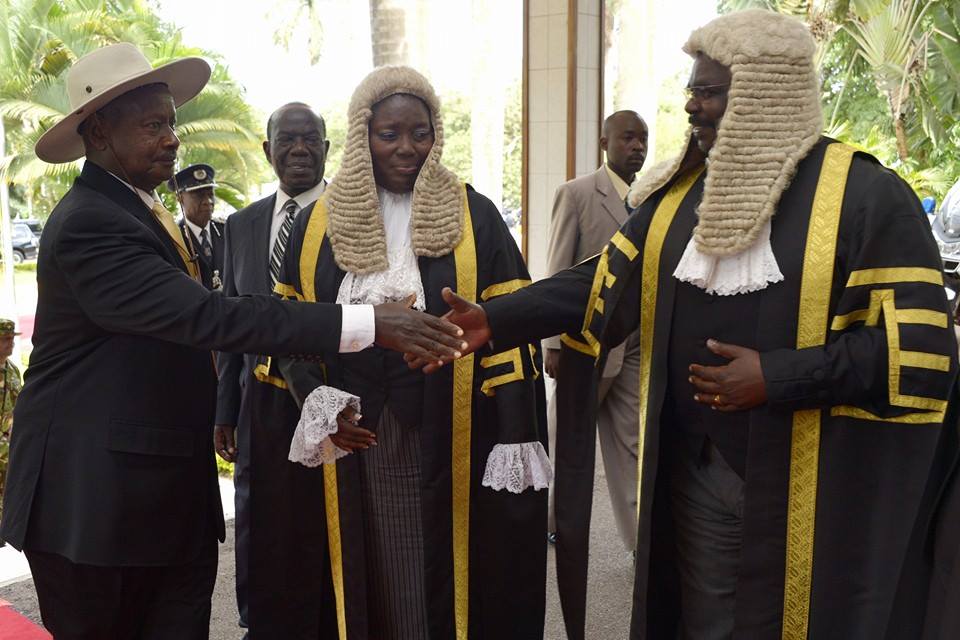
How much do MPs actually earn?
The MPs in 2006 passed the Parliamentary Pensions Bill 2005 which established their Contributory Pensions Scheme with MPs contributing 15% of their basic salary to the scheme, and the government 30% of the total of salary of each MP.
MPs earn different pay cheques depending on allowances each gets; which differ from MP to MP. This makes calculation of how much they earn and how much they should pay in taxes complicated.
However, basing on the most widely used in the media, when the MPs consolidated their income, each MP earns gross pay of about Shs20 million monthly. In this case, the MPs gratuity is 15% of gross, which is Shs3 million.
If the MP’s basic salary of Shs2.6 million was considered, gratuity contribution would be just Shs390, 000. Meanwhile, the government now contributes 30% of the Shs20 million gross consolidated pay; which is Shs6 million. That would be Shs780,000 if only the basic salary of Shs2.6 million is considered. This means, when income is consolidated, the MP gets a total gratuity contribution of Shs9 million per month (Shs108 million per year) instead of Shs1.17 million (Shs14 million per year) if only basic salary is considered.
This money is paid to an MP after every 12 months or whenever and MP vacates parliament. But the MPs would have to pay a tax (PAYE) on their gratuity; which is about Shs5.9 million per month when income is consolidated, compared to just Shs805, 000 if only basic salary is considered.
The problem is that URA argues that since MPs regard their consolidated pay as their basic salary for purposes of computing their gratuity allowance, the same consolidated basic salary should be used for income tax deduction purposes.
It appears, however, the MPs want to have a different basic salary figure (between Shs15 – 20 million) when calculating their gratuity and another, lower one (Shs2.6 million) when calculating income tax payable. To add petrol to the fire, the new MPs are demanding new allowances, including for tea, lunch, and housing.
Since MPs passed the bill, media platforms have been awash of condemnation messages as many cannot understand why MPs who appear to earn quite a pile want to avoid taxes yet others like teachers known for meager earnings will continue remitting theirs. Others wonder how other countries handle taxation of individuals like members of parliament who earn huge allowances – sometimes higher than their monthly salaries.
With their big pay cheques, activists argue that if the legislators are exempted, URA would lose revenue to a tune of Shs45 billion.
International best practice
Joseph Mawejje, a taxation expert at the Economic Policy Research Center (EPRC) Makerere University says it was wrong for MPs to consolidate their allowance. He says the technique of setting salary low and compensating employees through huge tax free allowances is used by entities world over.
“It is a legal way of avoiding taxes without trouble even though it has a disadvantage of not contributing to the bulk of terminal benefits,” he says.
Mawejje says Kenyan MPs have used the technique effectively. He says in 2013, after a UK entity; the Independent Parliamentary Standards Authority (IPSA) and the International Monetary Fund (IMF) exposed Kenya as second in the world in paying MPs highly, many Kenyans who were angered stormed parliament in the popular ‘pig riots’.
To calm them down, a salary reduction deal spearheaded by Deputy President William Ruto slashed MPs pay to Kshs532, 500 from the highs of Ksh851, 000. But in a swift accounting gimmick, the MPs were allocated numerous allowances that are not taxed.
Also, a report released last year by UK’s National Institute of Legislative Studies comparing legislators’ pay put a basic salary for a Tanzanian legislator at about $7000 per month which is subjected to a tax. Allowances including an annual Constituency Development Fund of $13,761 are not taxed.
Mawejje who says Uganda’s tax laws conform to international standards adds:” In all those countries including our developed counterparts that offer legislators big retirement packages, it’s the basic salary that is used to come up with pension”.
In UK for instance, MPs are entitled to join the MPs’ Pension Scheme, which provides a pension from age 65 or when the MP leaves Parliament. MPs pay contributions to the pension scheme. Under their interim resettlement payment policy, if anMP leaves Parliament voluntarily, they do not receive any payment. However, if they are defeated at an election they are entitled to claim a resettlement payment of one month’s salary for every year served, up to a maximum of six months.
According to Mawejje discussions of whether to tax or not to tax MPs are unheard of elsewhere. “They can only be held in countries like Uganda where tax bodies don’t have independence to make tax decisions according to the law,” he said, “In other countries, such bodies have autonomy to decide and institutions are respected. Legislators here want to take advantage of loopholes in the system to eat their cake and have it.”
Akena agrees. He adds that in many countries, even as allowances are not taxed, legislators are supposed to account for how they use this money, something that has failed to happen in Uganda. He cites the Shs10million annual Constituency Development Fund that was scrapped because of accountability challenges as many MPs used the money in their personal businesses instead of using it for the intended economic uplifting of constituencies.
In countries like Kenya, Akena says, there is accountability and money from the central government is channeled directly to electoral constituencies for local infrastructure projects even as decisions on how funds are allocated are made by parliamentarians.
Back to Uganda, Nicholas Opiyo, a renowned activist and lawyer, says MPs’ earning big money would not be a problem if they were performing to the expectations of their voters. He says the previous parliament recorded high rates of absenteeism and has left behind a backlog of business. He says the new parliament looks set to follow the same route.
“The conduct of MPs has made them to be perceived as being greedy and however genuine their demands can be, they are treated with a pinch of salt,” he says.
With 427 legislators, the 10th parliament is the biggest the country has ever had. This means the cost of maintaining it will also be high. The budget for Parliament has been increased from Shs371.3 billion in 2015/16 Financial Year to Shs651.9 billion for the 2016/17 FY. That is a 75% increase in the bill taxpayers have to foot.
 The Independent Uganda: You get the Truth we Pay the Price
The Independent Uganda: You get the Truth we Pay the Price



